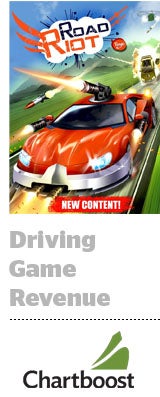 Developing game apps is a hard knock life – because once the development is done, the monetization work begins.
Developing game apps is a hard knock life – because once the development is done, the monetization work begins.
“Game developers have specific needs,” said Chung-Man Tam, chief product officer at mobile game discovery platform Chartboost, which launched a collection of tools on Thursday aimed at helping devs take better advantage of their first-party data.
Two such developer needs are transparency and control.
“There are a lot of different channels to spend on if you’re going to do app installs,” said Tam, who previously led product development and strategy at AdMob both before and after it was acquired by Google. “Some of our top customers are using over 250 different channels to execute all of their buys and it becomes really painful to manage all of those things.”
Chartboost’s answer is a tool it calls Smartbid, which allows developers to track installs across all of their various media partners by integrating with third-party attribution players, including Kochava, adjust, TUNE and Appsflyer.
The company is also rolling out post-install analytics and publisher segmentation into its existing product suite which includes cross-promotion tools, app analytics and a game-centric ad network. It also has a direct deal marketplace that allows developers to sell inventory or buy installs directly from other developers and keep a greater share of the revenue – between 90% and 100% – than would be possible if middlemen were involved.
In addition to the tools, Chartboost announced partnerships with mobile ad network Heyzap and app monetization platform Fyber. An integration with Twitter’s MoPub is on the way.
According to company CRO Clay Kellogg, Chartboost, which bills itself as a dev’s “best friend,” has more than 200,000 mobile games in its network, with a combined reach of 700 million-plus monthly unique users.
That’s part of the appeal for Chartboost client and GREE vet Jim Ying, VP of game publishing at Tango. The mobile messaging app, which has more than 300 million users, set aside $25 million in July as seed money – what became the Tango Global Games Fund – for developers around the world working on promising games to complement Tango’s network. Profits are split between Tango and the devs on a rev share basis.
The fund is mutually beneficial for developers, who get access to Tango’s audience – according to Tango’s CEO and founder, Uri Raz, about 70% of Tango’s core users play mobile games – and for Tango, which is looking to up its mobile revenue. Games are a key component of that strategy.
“Line, Kakao and WeChat – those are the No. 1 messaging apps in Japan, Korea and China, respectively, and for all of them, games are the single largest source of revenue,” Ying said. “We view games as a significant contribution to revenue for the company.
But even apps developed with the support of the Tango fund, including Road Riot, which has 20 million installs, need an extra monetization boost. And that’s where Chartboost comes in. Tango uses Chartboost to cross-promote its titles on other games with similar audiences using interstitials and mobile video ads. The company has also seen good results with rewarded video.
“The biggest challenge for us is quality installs at scale,” Ying said. “But even for someone like Tango, which has a significant user base, it’s hard to compete, both in terms of finding or developing high-quality games and in going up against the top games in the market – even if we do find enough relevant players for our games.”
Founded in 2011, Chartboost has more than 120 employees spread across three offices in San Francisco, Amsterdam and a recently opened location in Tokyo. The company’s last Series B round in early 2013 brought its total funding to $21 million.














